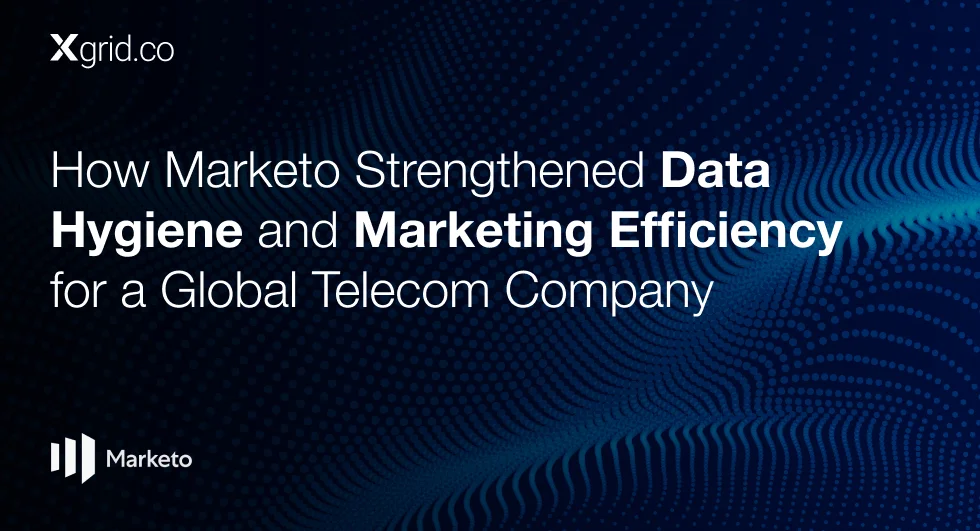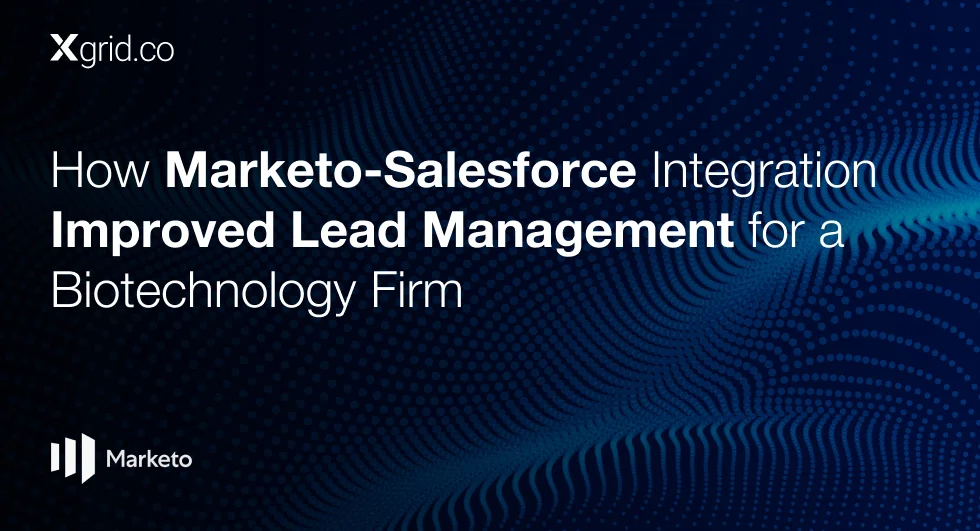How Marketo Campaigns Were Streamlined with Templates and Tokens
The company needed to accelerate its marketing campaign development and deployment to keep pace with its rapid product evolution and competitive market dynamics.
Challenges
- Repetitive Tasks: High volume of repetitive tasks associated with campaign setups and adjustments.
- Resource Constraints: Limited marketing resources struggling to meet increasing demands for personalized customer communications.
- Scalability Issues: Need for scalable solutions to manage an increasing number of marketing campaigns without additional resources.
Strategic Objectives
- Increase Marketing Agility: Improve the speed and flexibility of marketing campaign adjustments and deployment.
- Enhance Resource Efficiency: Maximize the efficiency of available marketing resources and reduce manual labor through automation.
- Scale Marketing Efforts: Develop scalable marketing processes that can grow with the company’s expansion and increased marketing demands.
Strategies Employed
- Implementation of Marketo Templates: Adopt Marketo’s program templates to standardize campaign structures and facilitate rapid deployment.
- Extensive Use of Tokens: Utilize tokens to automate customization and updates to campaign content, significantly reducing manual setup times.
- Training and Optimization: Conduct comprehensive training for marketing staff on the effective use of Marketo’s templates and tokens to ensure adoption and optimization.
Implementation Highlights
- Template Standardization: Developed a set of standard templates for various types of campaigns, which could be quickly adapted with minimal adjustments.
- Token Automation: Implemented a system of tokens for dynamic content adjustment, which automatically updated campaign elements based on predefined rules.
- Process Refinement Workshops: Regular workshops were held to refine the use of templates and tokens, gather feedback from users, and continually improve the processes.
Outcomes
- Reduced Campaign Setup Time: The average time required to set up new campaigns was reduced by over 50%, enhancing marketing agility.
- Increased Campaign Volume: With the improved efficiency, the organization was able to increase the number of simultaneous campaigns without additional resources.
- Improved Marketing ROI: Streamlined operations reduced overhead costs and improved the return on marketing investment through quicker and more targeted campaigns.
Conclusion
Strategic use of Marketo’s templates and tokens transformed the organization’s marketing operations, enabling faster responsiveness to market changes and customer needs.
This case study exemplifies how effectively leveraging Marketo’s advanced features can result in substantial improvements in marketing efficiency, scalability, and performance.
Downloads
Article (PDF-276 KB)MOST POPULAR INSIGHTS
- How Marketo Strengthened Data Hygiene and Marketing Efficiency for a Global Telecom Company
- How Marketo-Salesforce Integration Improved Lead Management for a Biotechnology Firm
- How a Tech Company Used Marketo to Refine ABM Strategies for Sales Engagement
- How Marketo Solidified Marketing Insights with Custom Attribution Models
- How Marketo Improved Marketing Campaigns through Effective Data Segmentation and Integration
Related Articles
Related Articles

Established in 2012, Xgrid has a history of delivering a wide range of intelligent and secure cloud infrastructure, user interface and user experience solutions. Our strength lies in our team and its ability to deliver end-to-end solutions using cutting edge technologies.
OFFICE ADDRESS
US Address:
Plug and Play Tech Center, 440 N Wolfe Rd, Sunnyvale, CA 94085
Pakistan Address:
Xgrid Solutions (Private) Limited, Bldg 96, GCC-11, Civic Center, Gulberg Greens, Islamabad
Xgrid Solutions (Pvt) Ltd, Daftarkhwan (One), Building #254/1, Sector G, Phase 5, DHA, Lahore




